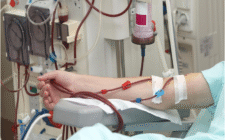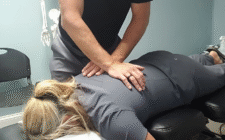Another self-help article about how to relax, eh? If you are a healthcare professional, then you might find such advice a bit contrary to the nature of your calling. Physicians, registered nurses, and other healthcare workers all work exceptionally hard and at no point along the path to becoming a healthcare worker has anyone lied to you about the level of commitment required. You knew being a doctor would involve long hours from day one, and you knew that becoming a registered nurse would involve night shifts and the kind of life and death situations that truly exhaust the nerves. Relaxation just isn’t for those in healthcare jobs, right? Wrong.
In fact, if you are a healthcare worker, then relaxation is even more important than it is for those in other professions. One of the biggest problems with healthcare workers is that they often don’t know how to relax. And this is no trivial matter. Recent statistics have shown that healthcare workers today are suffering higher levels of burnout than ever before. This is nothing short of a national catastrophe, and it is vitally important that something be done about it.
The Danger of Burnout
If you are not convinced of the magnitude of the problem, it is worth considering for a moment what burnout is and how it affects medical professionals. Burnout is an umbrella term for the type of state which is reached at the end of a long period of continual exhaustion, when normal functioning in life and at work becomes impaired. A person suffering burnout is likely to experience mental health problems like depression and anxiety, is more likely to abuse substances and, tragically, is far more likely to commit suicide. Burnout is no joke.
The burnout pandemic also has effects on the job market as well as individual health. Health Jobs, an online health jobs board, say that among the many reasons for the current shortage of talent and the job seekers’ market is that there is a mini exodus from healthcare institutions of burned-out employees.
Ways to Wind Down
So, what can you do about it? As mentioned, learning to properly relax will take you a long way. Nevertheless, for those who have just worked a long hospital shift, this is more difficult than you might think. After an extended time on the wards, there is a level of sustained stress and alertness that is difficult to simply switch off. The following tips should help:
Exercise
From releasing mood-boosting endorphins to helping you sleep, exercise is absolutely something you should be doing in your free time. Doing it after you finish work will offer a stop gap between work and rest, making the transition easier.
Disconnect
In a bustle of hastily shouted instructions and communication, a hospital shift will overexpose you to language, lights, and people. Accordingly, when you clock off you should try to unplug yourself from this. Turn your phone off and take some time for yourself.
Read a Book
The reason books are popular at bedtime is that they provide a gentle mental activity to allow your brain to shift gear before sleep. The same applies after a 12-hour hospital shift.
Treat Yourself
This might actually be the most important tip of all. You should not feel like relaxing is something that you need to work hard at (even if, in a sense, you do). To combat this feeling, make the time to do something you genuinely love.
Unwinding after a hospital shift isn’t just about learning how to relax, it’s about how to keep at bay some of the most severe health conditions out there.




